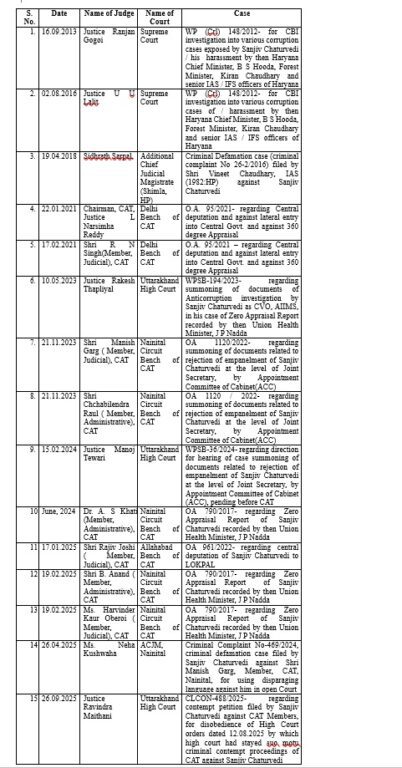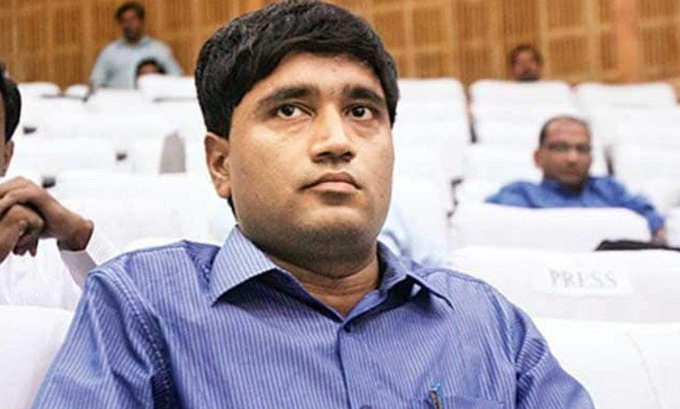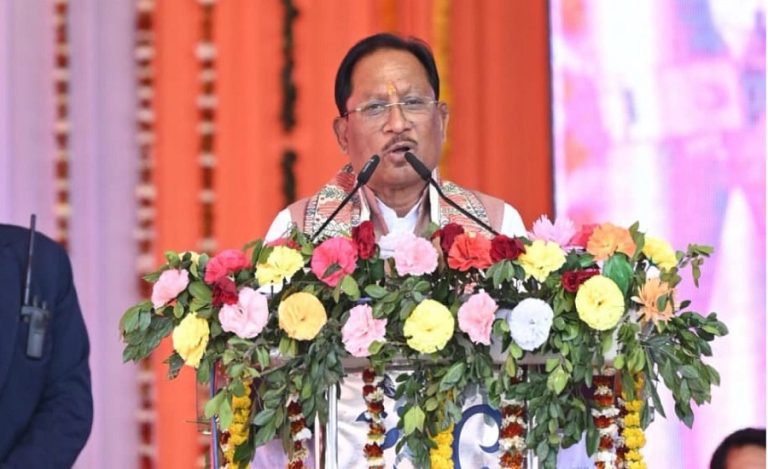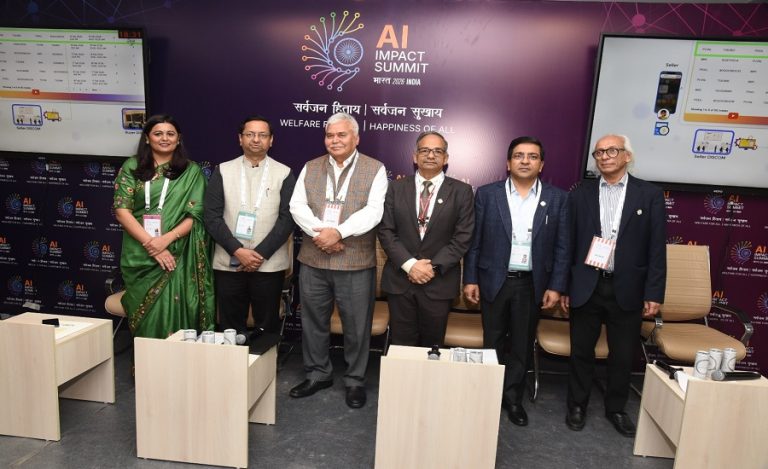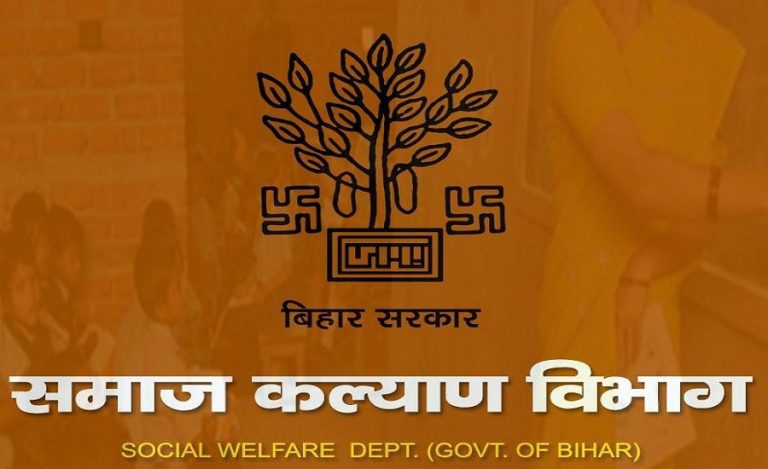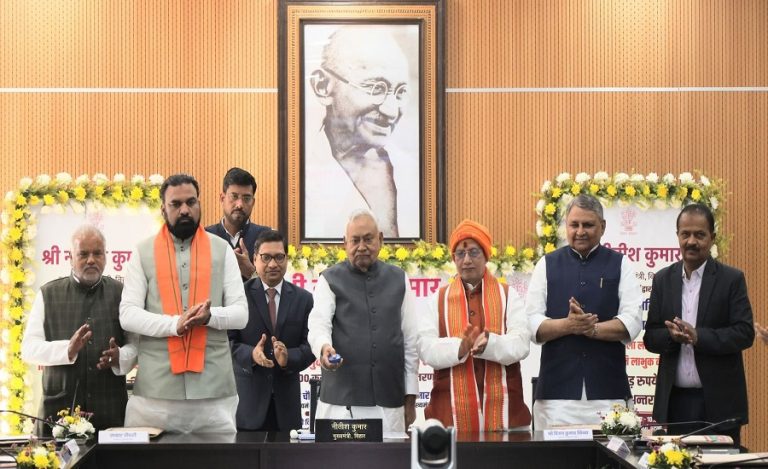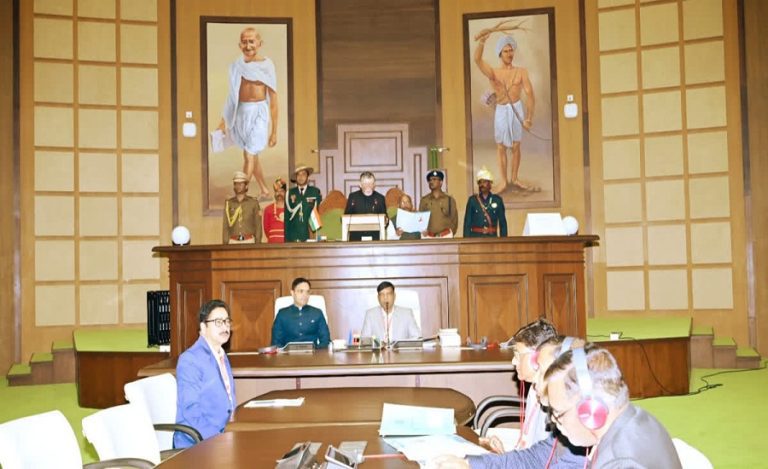Dehradun: In what legal experts are calling an unprecedented event in Indian judicial history, a total of 15 judges and tribunal members have now recused themselves from hearing matters involving 2002-batch Indian Forest Service (IFS) officer Sanjiv Chaturvedi, known for his anti-corruption activism.
The most recent recusal came on September 26, when Justice Ravindra Maithani of the Uttarakhand High Court stepped aside from hearing a contempt petition filed by IFS Chaturvedi against members of the Central Administrative Tribunal (CAT). The order merely stated the matter be listed before “another Bench of which I am not a Member,” offering no reasons.
Third Recusal in Uttarakhand High Court Alone
Justice Maithani is the third judge from the Uttarakhand High Court this year to recuse from Chaturvedi’s cases. Earlier –
- Justice Manoj Tiwari recused in February 2024 from a case concerning Chaturvedi’s central deputation.
- Justice Rakesh Thapliyal stepped aside in May 2023 from a matter involving performance appraisals.
15 Recusals Across Judicial Spectrum
The total of 15 recusals includes –
2 Supreme Court judges
- Justice Ranjan Gogoi (2013)
- Justice U.U. Lalit (2016)
3 High Court judges (Uttarakhand)
- 2 lower court judges, including ACJM Neha Kushwaha who recused in April 2025 citing “previous family relations” with a CAT judge.
- 8 CAT members, including a former Chairman.
Legal Experts Express Concern
“This is highly irregular,” said a senior Supreme Court advocate who requested anonymity. “While a judge has the right to recuse, such a large number across courts and tribunals raises serious concerns about continuity and fairness in the judicial process.”
Another expert noted that repeated recusals not only delay justice but also risk eroding public trust, especially in cases involving public interest and anti-corruption.
What Are the Cases About?
Sanjiv Chaturvedi, a Ramon Magsaysay Award recipient, has been pursuing litigation related to service matters, promotions, and alleged harassment by government officials. Many of his cases involve his tenure in Haryana, where he alleged systemic corruption, including in the forestry and health departments.
His cases often intersect with powerful bureaucratic and political figures, and observers believe this may explain the unusual judicial pattern.
Why Judges Recuse – And Why This Matters
Under judicial ethics, recusal is voluntary and often done to avoid conflict of interest or bias. However, judges are not required to give a reason.
In most cases, this system maintains impartiality – but when multiple recusals occur without disclosure, it raises transparency concerns, say legal experts.
Chaturvedi’s Persistence Despite Legal Roadblocks
Despite these setbacks, IFS Chaturvedi has continued pursuing legal remedies. His dedication has turned him into a symbol of bureaucratic resistance to corruption, but it has also placed him at the center of prolonged legal battles with limited resolution in sight.
